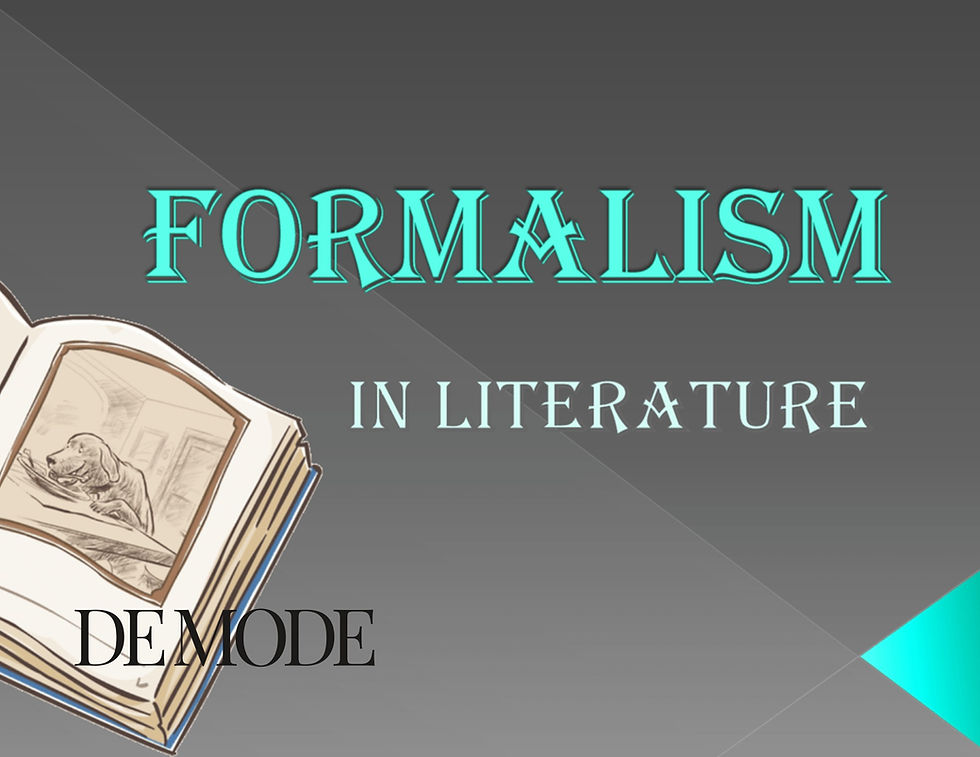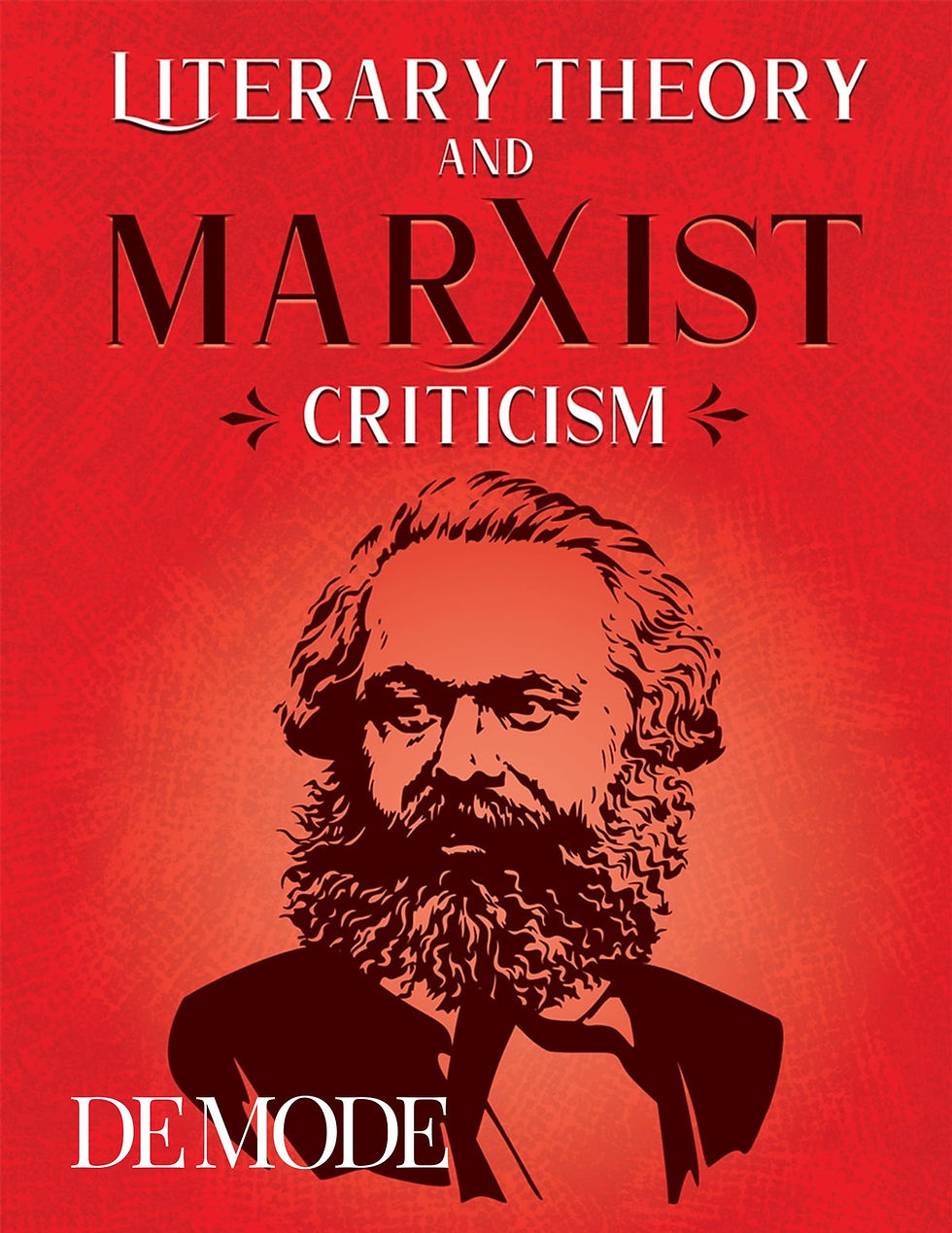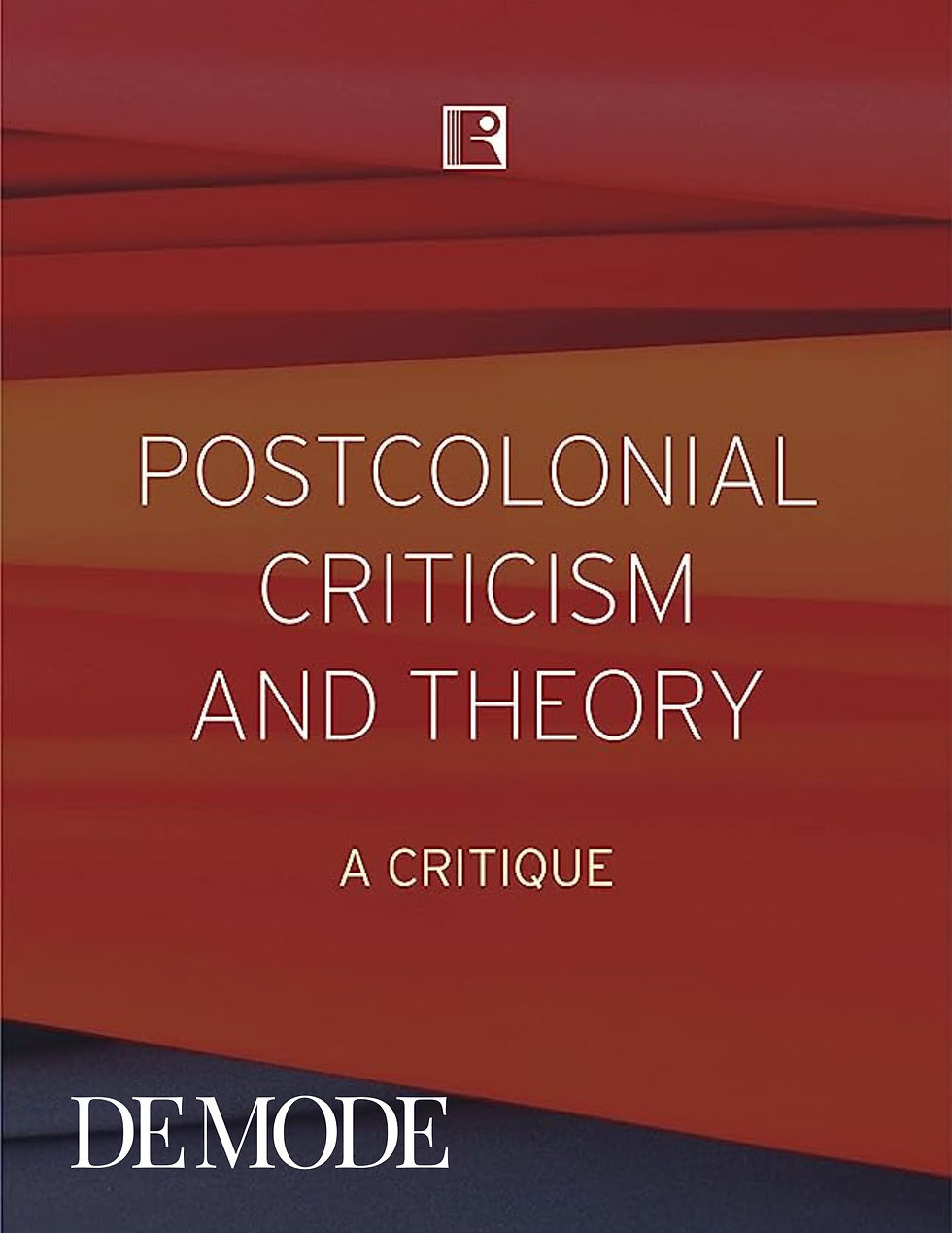ORIGINALLY PUBLISHED IN DE MODE
Article Published on: 05TH JULY 2023 | www.demodemagazine.com
Literary theory is a field of study that delves into the various ways of interpreting and analyzing literature. It offers a set of frameworks and critical approaches that enable readers to engage with texts on a deeper level, uncovering multiple layers of meaning and exploring the social, cultural, historical, and political contexts in which they were produced. By unpacking literary theory and understanding its critical approaches, readers can gain a more nuanced understanding of literature and its impact on society. In this essay, we will explore some of the key critical approaches in literary theory and their significance in analyzing and interpreting literary works.
One of the foundational critical approaches in literary theory is formalism. Formalists focus on the formal elements of a literary work, such as its structure, language, imagery, and style. They believe that the meaning of a text resides within the text itself, independent of external factors. Formalist critics pay close attention to the use of literary devices, the arrangement of words and phrases, and the overall aesthetic qualities of the work. By analyzing these formal elements, formalists aim to uncover the unique artistic techniques employed by the author and how they contribute to the overall meaning of the text.

Another important critical approach is historicism. Historicism emphasizes the historical and cultural contexts in which a literary work was created. It seeks to understand how the social, political, and intellectual climate of a particular time period influences the themes, ideas, and values presented in the text. Historically-oriented critics analyze the historical events, cultural norms, and intellectual movements of the author's era to shed light on the significance of the work. By examining the historical context, readers can gain insights into the motivations and intentions behind the author's writing and the ways in which the text reflects or challenges the prevailing ideologies of its time.
Marxist criticism is a critical approach rooted in the theories of Karl Marx. Marxist critics view literature as a product of its socio-economic conditions and believe that it reflects and perpetuates class struggles and power dynamics within society. They analyze how literary works depict social classes, labor relations, and economic inequalities, as well as the ways in which they either reinforce or challenge the dominant ideology. Marxist criticism often examines the representation of social conflict, the portrayal of working-class characters, and the critique of capitalism in literature. By applying a Marxist lens, readers can uncover the underlying political and economic messages embedded in literary texts.

Feminist criticism is another significant critical approach that emerged in the latter half of the 20th century. Feminist critics explore how gender shapes the production and reception of literature. They examine the representation of women, gender roles, and power dynamics between genders in literary works. Feminist criticism seeks to challenge patriarchal norms and highlight the ways in which literature can reinforce or subvert gender stereotypes and inequalities. By employing feminist perspectives, readers can bring attention to the voices and experiences of marginalized characters and explore how gender intersects with other social categories, such as race, class, and sexuality.
Postcolonial criticism focuses on literature produced in the context of colonialism and its aftermath. Postcolonial critics examine the representation of colonized peoples, the impact of colonialism on cultural identity, and the power dynamics between the colonizer and the colonized. They interrogate how colonial discourses and ideologies shape the construction of race, ethnicity, and culture in literature. Postcolonial criticism also explores issues of hybridity, diaspora, and cultural resistance. By engaging with postcolonial perspectives, readers can challenge Eurocentric narratives and broaden their understanding of the complexities of colonial and postcolonial societies.

These are just a few examples of the critical approaches employed in literary theory. Each approach offers a distinct lens through which readers can engage with and interpret literature. By unpacking these critical approaches, readers can develop a more comprehensive understanding of the social, political, cultural, and historical dimensions of literary works. Literary theory enables readers to move beyond surface-level interpretations and encourages them to explore the deeper meanings, ideologies, and values embedded in texts. It enriches the reading experience by fostering critical thinking, encouraging dialogue, and promoting a greater appreciation for the diverse perspectives and voices found in literature.